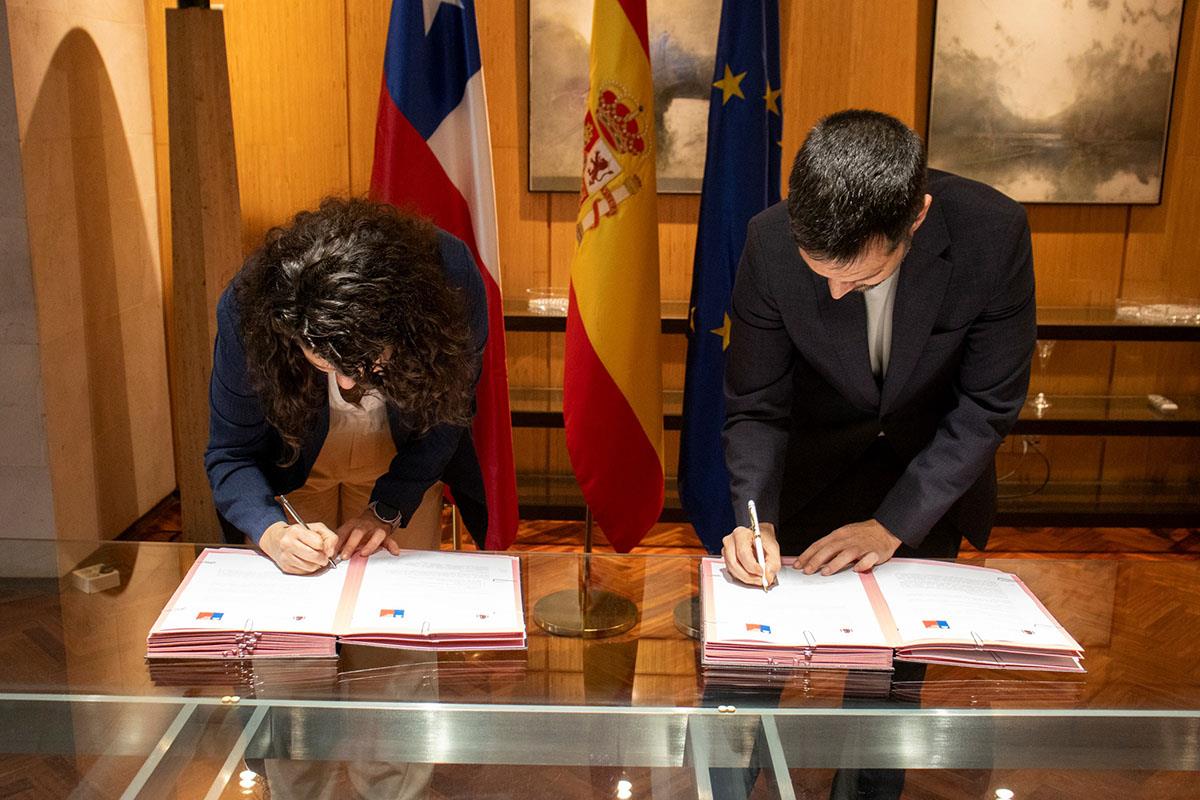 The Minister for Social Rights, Consumer Affairs and 2030 Agenda , Pablo Bustinduy, with his Chilean counterpart, Javiera Toro, during the signing
The Minister for Social Rights, Consumer Affairs and 2030 Agenda , Pablo Bustinduy, with his Chilean counterpart, Javiera Toro, during the signing
The Spanish Ministry of Social Rights, Consumer Affairs and 2030 Agenda and the Chilean Ministry of Social Development and Family have signed a Memorandum of Understanding to strengthen bilateral cooperation on care policies. The document, signed by ministers Pablo Bustinduy and Javiera Toro, establishes a framework for cooperation to move forward with the transformation of the long-term care model, with a focus on a community-based approach and deinstitutionalisation. Both ministries underline the need to address care as a fundamental right of people and advocate for the professionalisation of care work.
The memorandum also stresses that care work has historically fallen on families and specifically on women, and denounces the fact that it has been made invisible and undervalued. For this reason, the Spanish and Chilean administrations are committed to this transformation having a gender perspective and including in its design all the population groups involved in the system: children, young people, the elderly, people in situations of dependency and people who provide care services.
The overriding objective is to overcome the logic of care and institutionalisation and move towards systems that promote autonomy. In this regard, the memorandum advocates that people should be able to continue to live at home or in close surroundings when they need support.
To this end, the memorandum sets out five operational lines to guide the joint work:
- Strengthening community systems: through community participation in the development of care pathways, the creation of local support networks and specific attention to rural areas.
- Prevention of institutionalisation: with measures such as early care, improving work-life balance and streamlining administrative procedures.
- Care economy: which includes the professionalisation of the sector and the improvement of workers' working conditions.
- Innovation in care: through the development of pilot projects, the establishment of common indicators and the creation of learning communities for innovative solutions.
- Exchange of information, good practices and monitoring: strengthening mutual learning and joint evaluation mechanisms.
The memorandum signed between Spain and Chile is part of the reform processes that both countries are carrying out to guarantee the right to care and to move towards fairer, more sustainable models adapted to the social challenges of the 21st century. These challenges include demographic ageing, changing family structures and the feminisation of care.
With this strategic alliance, both countries are moving towards an international care policy based on co-responsibility, gender equity and shared public innovation.
Non official translation




